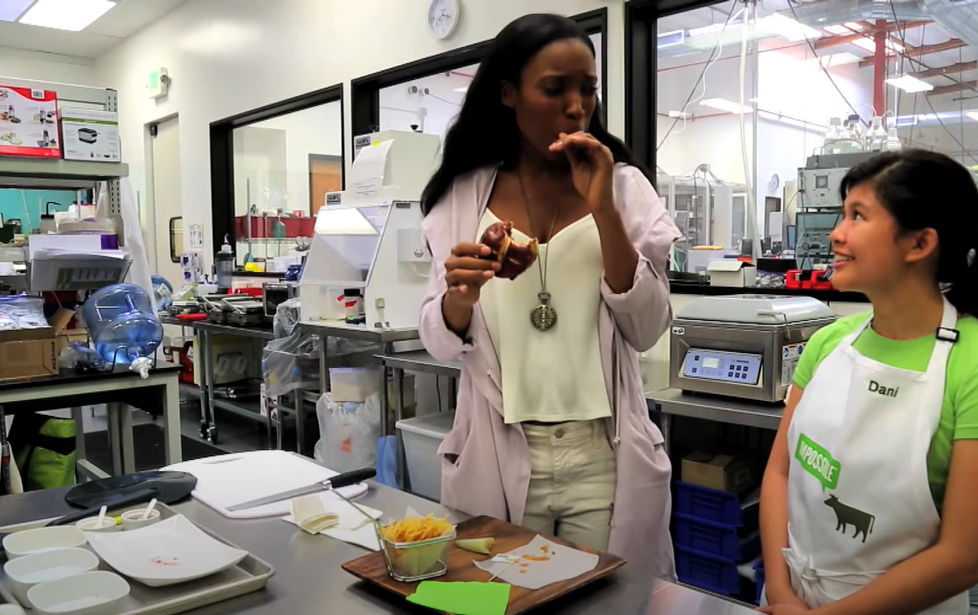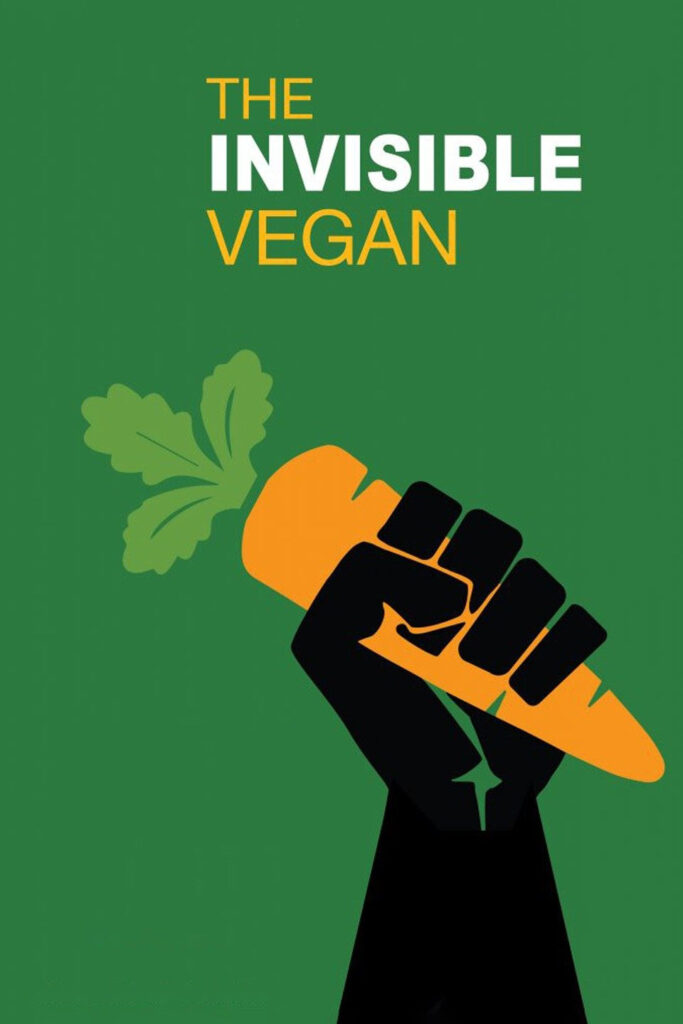‘The Invisible Vegan’ review: Oh, so that’s what Black vegans look like
Director Jasmine C. Leyva explores the power of the plate in shaping our health, our culture and our identities.

Director Jasmine C. Leyva explores the power of the plate in shaping our health, our culture and our identities.

By Ciara Rouege
“The Invisible Vegan” (2019) is an independent film about the institutional racism within American food culture, specifically veganism.
Honestly, it’s a topic that normally turns me off and I tend to avoid Black trauma porn, but this film surprised me. African-Americans are too often criticized for our diets as though we’re the only racial group stuffing our face with toxic preservatives and grease and hitting up fast-food joints at midnight.
However, I recently made the decision to go dairy-free and could see myself potentially going vegan in the future, strictly for health reasons. Rainbow Plant Life, who does wonderful vegan cooking videos on YouTube, talked about how people think veganism means a life of acai bowls and salads partially because white culture is overrepresented in mainstream teachings about the lifestyle.
That struck a cord with me. I’d never thought about pulling recipes from the cultures that had perfected vegan cooking over several generations. More importantly, it inspired me to seek out people who looked like me eating and living vegan. And this documentary delivered!
It showed Black people of different backgrounds eating vegan, some for health reasons and others as a form of activism.
Director Jasmine C. Leyva isn’t talking for our people in this documentary but instead to us. The film acknowledges institutional problems Black people face on the journey to becoming vegan. But it doesn’t present it in a way meant to educate white people on the Black experience.
Leyva didn’t over explain concepts widely understood by Black people. She helped me understand I’m not alone in how I feel and verbalized many of my thoughts. For example, becoming vegan to protect animals never appealed to me.
It’s not that animals don’t matter or that the fight for animal rights is competing with human rights; but it’s juxtaposition to the fight for Black rights within my own life. It’s common for people advocating for animal rights to pull analogies or terms from enslavement: ‘cages,’ ‘mistreatment,’ ‘torture,’ neglect,’ ‘rape,’ ‘assault,’ ‘invisibility,’ ‘suffocation,’ and so on.
These images have a traumatizing effect on Black people. When it looks like the world is more open to giving basic human rights to animals than African-Americans, it’s frustrating and offensive. Blacks weren’t just slaves, it was written into the U.S. constitution that we were “three-fourths of a human.” Now whether or not American society wants to acknowledge the lingering impacts of that still exist today is completely irrelevant, we have to live with it. Of course, there’s plenty of Black animal rights activists, the Black community’s relationship with that issue is a bit more complex. While not as loaded, environmental activism is another one, it’s a “privilege problem.”

It answers my questions about vegan food being nasty; and will it make my booty small; and does this mean abandoning my heritage; can I do this with my husband without him feeling effeminate; will I have to start eating kale salads and shopping at Lululemon…and it goes on.
I’m not trying to politicize this movie and definitely not villainize white people, but the film’s removal of the white gaze* distinguishes it from other documentaries about Black life.
I wish more documentaries were like this, especially in this George Floyd era, when our issues are constantly being dissected and given the Hollywood-filter before being televised for white audiences.
The Invisible Vegan is one to watch. This film has the power to convert people to veganism or vegetarianism if not dispel a lot of their misconceptions.
And although I’ve praised it as a film to Black people, the messages are accessible to everyone.
GRADE: A
Where to watch: The Invisible Vegan is available for streaming on Amazon or through Tubi.
*The white gaze is the assumption that the default reader or observer is coming from a perspective of someone who identifies as white, or that people of color sometimes feel need to take into account the white reader or observer’s reaction. African-American writer Toni Morrison, analyzing whiteness in American literature, popularized the concept.
